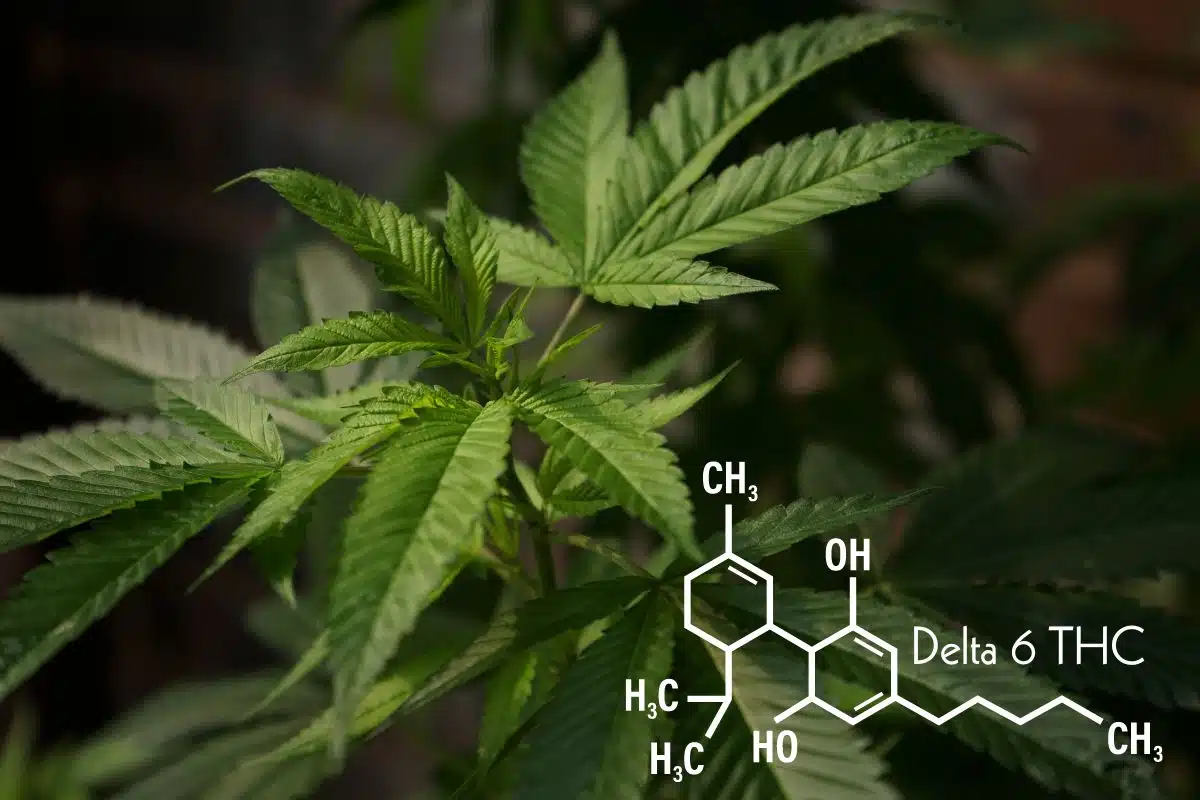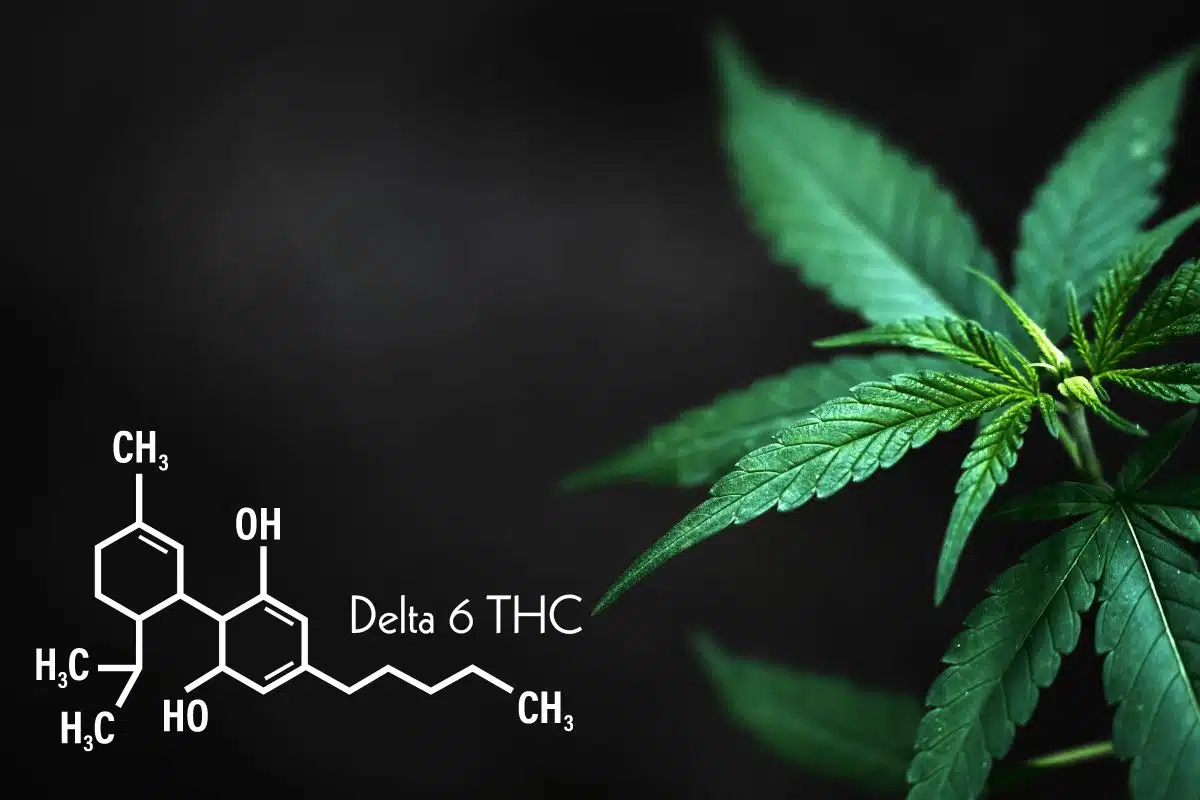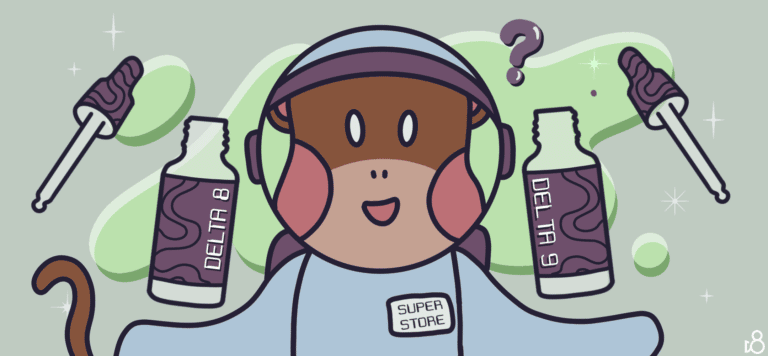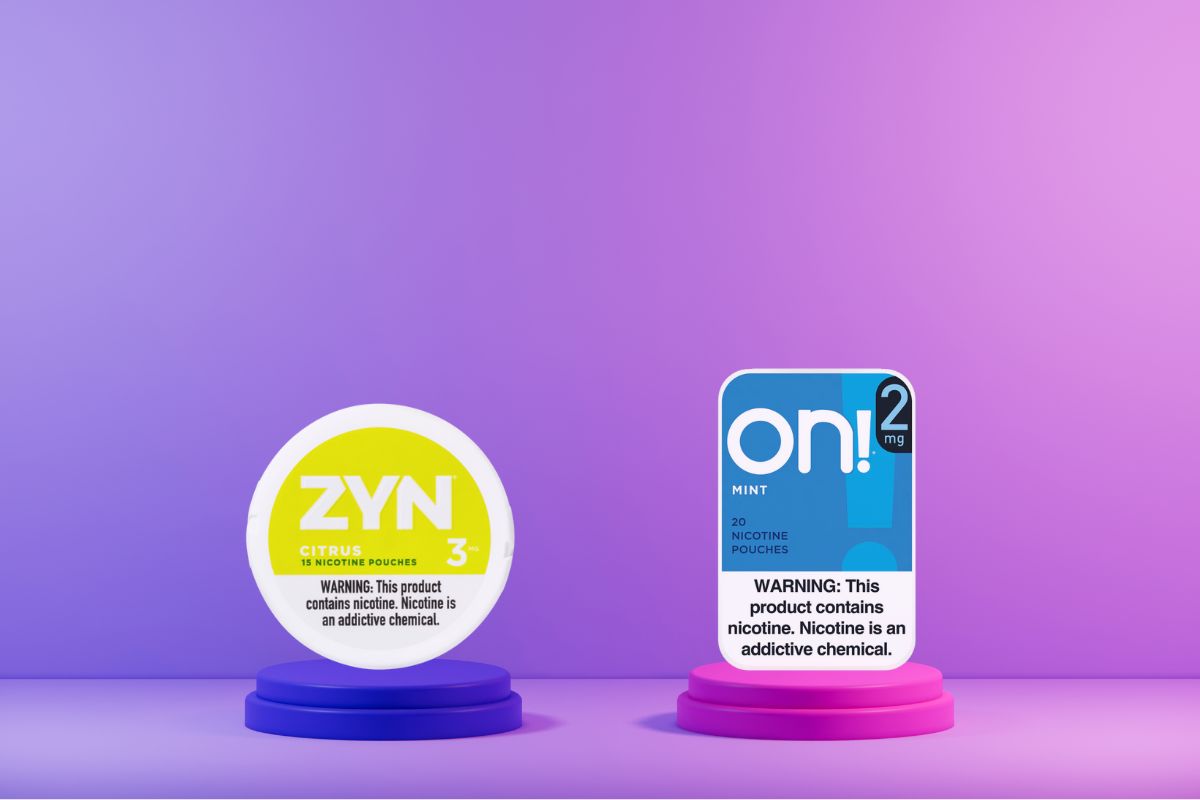Delta 6 THC: Unveiling the Cannabinoid’s Potential and Effects
Delta 6 THC shines bright like a secret treasure in the huge cannabis universe. Exploring the world of cannabinoids, you’ll see Delta 6 THC looking a lot like its cousin, Delta 9 THC, the main psychoactive hero in cannabis. But they’re not exactly matching. They look alike, but what they’re made of and the excitement they add are different. Delta 9 THC is all about that strong psychoactive hit, while Delta 6 THC sneaks up softly. Discover why folks wanting a softer buzz might pick Delta 6 THC.
Your understanding of Delta 6 THC’s effects on the body is crucial as its interaction with the endocannabinoid system can influence various physiological processes. Studies have observed that cannabinoids like Delta 6 THC have potential binding affinity with CB1 and CB2 receptors, which are part of this system. Awareness of these interactions can help you make informed decisions about cannabinoid use.
Table of contents
In the scientific community, research into cannabinoids, including the potential therapeutic applications of Delta 6 THC, is growing. Your awareness of the chemical differences and the distinct effects compared to its better-known counterparts like Delta 9 THC, can guide your choices and expectations regarding its use. Its nuanced effects and potential benefits are areas of particular interest both for medicinal and recreational consumers.
Chemical Profile of Delta 6 THC

Your understanding of Delta 6 THC can be enriched by exploring its chemical nature and how it fits within the cannabinoid family. With precise information on its structure and production, you’ll grasp why its legal landscape is so complex.
Cannabinoid Overview
Delta 6 THC falls under cannabinoids, which are naturally occurring compounds in the cannabis plant. Unlike its close relatives Delta 9 THC and Delta 8 THC, Delta 6 THC is lesser-known but equally significant as a psychoactive component.
Delta 6 THC Isomerization
Delta 6 THC is an isomer of THC, meaning it has the same molecular formula as Delta 9 THC and Delta 8 THC but with a different chemical structure. Isomerization alters the placement of a double bond in the molecule, creating Delta 6 THC.
THC Variants Comparison
Cannabinoids like HHC, Delta 8, and Delta 10 are structural variants of THC. While Delta 9 THC is the most recognized psychoactive cannabinoid, Delta 6 THC also interacts with the body’s endocannabinoid system, though it might exhibit distinct effects.
Federal Legal Framework
The 2018 Farm Bill altered the legal landscape of hemp-derived products. It essentially removed hemp, defined as cannabis with less than 0.3% Delta 9 THC, from the Controlled Substances Act. However, ambiguity remains regarding the legal status of Delta 6 THC.
Cannabis Plant Sources
Delta 6 THC is sourced from the cannabis plant, specifically from strains that are rich in THC isomers. Manufacturers extract it from the flowers or concentrates of the hemp plant.
Extraction and Production
The production of Delta 6 THC involves extracting THC from hemp followed by the isomerization process. Manufacturers may offer Delta 6 THC products in distillate form, which are crafted for use in various cannabis products.
Delta 6 THC Molecular Formula
The molecular formula for Delta 6 THC is the same as for other THC isomers, including Delta 9 and Delta 8, which is C₂₁H₃₀O₂. This demonstrates the cannabinoid’s close relationship with its more prevalent counterparts.
By learning about Delta 6 THC’s unique attributes, you can navigate its place within the cannabinoid family more confidently. Understanding its molecular identity offers insight into its potential psychoactive effects and how it compares to other cannabinoids.
Physiological Impact of Delta 6 THC

Delta 6 THC, a lesser-known cannabinoid, shares some properties with its more famous counterparts yet has distinct physiological effects. Exploring its interaction with your body’s systems is key to understanding its potential therapeutic applications and safety profile.
Properties of Delta 6 THC
Delta 6 THC, chemically similar to Delta-9 THC, is a compound found in the cannabis plant. It exhibits psychoactive effects and may induce a high, though its potency is typically less than that of Delta-9 THC. This difference in potency can influence both the therapeutic benefits and side effects you might experience.
Interaction with the Endocannabinoid System
Your endocannabinoid system (ECS) plays a crucial role in regulating mood, appetite, and pain sensation. Delta 6 THC binds to cannabinoid receptors within this system, potentially offering anxiolytic (anxiety-reducing) and anti-inflammatory properties, which can lead to mood enhancement and pain relief. Its interaction with the ECS is complex and may also contribute to an increased appetite.
Potential Benefits and Uses
Delta 6 THC may offer a variety of therapeutic benefits, including:
- Anxiolytic effects: Could reduce symptoms of anxiety.
- Appetite stimulation: May increase appetite, beneficial for those with appetite loss.
- Pain relief: Potential to alleviate certain types of pain.
- Anti-inflammatory: Might have anti-inflammatory effects that could help with various conditions.
These uses suggest a potential for clinical applications, warranting further study for relaxation and additional therapeutic benefits.
Side Effects and Risks
While Delta 6 THC may have potential benefits, it’s crucial to be aware of the side effects and risks:
- Psychoactive effects: May lead to intoxication, with a risk of impaired judgment.
- Dry mouth and eyes: Common adverse effects associated with THC.
- Increased appetite: Could lead to unintended weight gain.
Always exercise caution and consult a healthcare professional before using Delta 6 THC, particularly due to the potential risks inherent with its psychoactive nature.
Consumer Information

When considering Delta-6 THC products, it’s crucial for you to understand the variety available, how to assess quality, recommended dosages, potential drug testing implications, and where to find reliable educational resources. Below are subsections designed to guide you through what you need to know.
Product Varieties
Delta-6 THC is available in several forms including gummies, edibles, tinctures, vape carts, and disposable vapes. Each product type offers a different experience; for example, edibles may lead to a longer-lasting psychoactive effect compared to vaping, which typically provides a quicker onset.
Determining Quality and Purity
Quality and purity are critical when selecting Delta-6 THC products. Look for third-party lab testing results that confirm the absence of harmful contaminants and verify the potency. CBD content should be labeled accurately, and products should differentiate between Delta-9 THC and other THC cannabinoids.
Dosage and Consumption Methods
Begin with a low dose to understand how your body reacts and gradually increase as needed. Dosage varies by consumption method:
- Gummies/Edibles: Start with a small piece.
- Tinctures: Begin with a few drops under the tongue.
- Vapes: Take a single short puff and wait.
Drug Testing Considerations
Be aware that Delta-6 THC can be metabolized into compounds similar to Delta-9 THC metabolites, which may trigger a positive result on a drug test. If you are subject to drug testing, consider this risk seriously.
Educational Resources
Consult a variety of educational resources such as the Journal of Psychopharmacology or speak with healthcare professionals to understand the potential benefits and risks associated with Delta-6 THC use.
Guidance on Responsible Use
For cannabis users, the emphasis on responsible use is paramount. Start with lower dosages, understand your mental clarity and focus levels, and avoid operating heavy machinery if you experience confusion or other impairing effects.
Research and Clinical Studies
Look for research published by established researchers in fields related to psychoactive cannabinoids. Studies on mice or semi-synthetic cannabinoid compounds can provide insight into the effects and long-term impact of Delta-6 THC use.
Frequently Asked Questions
In this section, we address some of the most common inquiries regarding Delta 6 THC, a cannabinoid found in the cannabis plant, to shed light on its effects, benefits, and distinctions from other THC compounds.
What distinguishes Delta 6 THC from Delta 8 in terms of effects and potency?
Delta 6 THC is a less prominent cannabinoid and may have milder psychoactive effects compared to Delta 8 THC. While both can alter consciousness, Delta 8 is typically more potent and may produce a stronger high.
Can you describe the psychoactive effects of Delta 6 THC and if it induces a high?
Delta 6 THC does have psychoactive properties and can induce a high, although it is generally considered to be less intense than the high produced by Delta 9 THC. The specific effects can vary depending on the individual.
How does Delta 6 THC compare to Delta 9 concerning psychoactive potency and legal status?
Delta 6 THC is usually less psychoactive than Delta 9 THC, which is the primary compound associated with the potent effects of traditional cannabis. The legal status of Delta 6 varies by jurisdiction, often influenced by its sourcing and concentration.
What are the potential benefits of using Delta 6 THC?
While research is limited, some users report Delta 6 THC may offer similar therapeutic benefits to other cannabinoids, such as pain relief and anti-inflammatory effects, but more studies are needed to fully understand its benefits.
Could you explain the side effects associated with Delta 6 THC consumption?
As with other THC compounds, potential side effects of Delta 6 THC may include dry mouth, red eyes, increased appetite, and short-term memory impairment. It’s important to use it responsibly and be aware of how it affects your body.
What is Delta 6 THCa Liquid Diamonds, and what makes it unique?
Delta 6 THCa Liquid Diamonds is a high-purity cannabis extract that contains Delta 6 THC in its acidic form (THCa), which is non-psychoactive until activated by heat. Its uniqueness lies in the extraction process that preserves the cannabinoid profile and terpenes, potentially leading to a more flavorful and potent experience when vaporized or dabbed.










